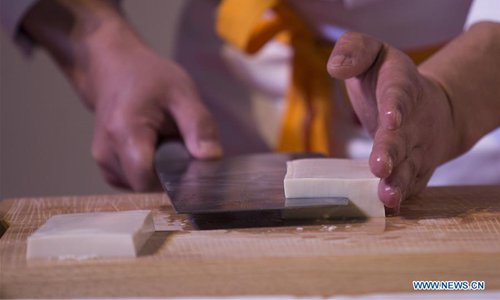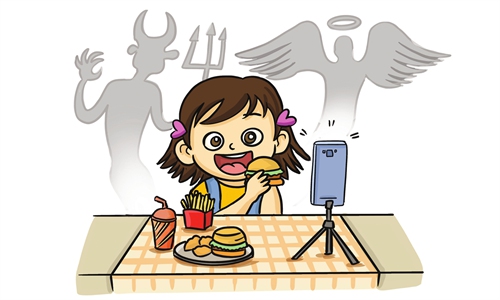ARTS / VIDEO GAMES
TikTok’s ‘Chinesefood’ hashtag ignites interest in Chinese food culture overseas

A Chinese cook performs cutting techniques during the Chinese Food Culture Festival in Bern, capital of Switzerland. Photo: Xinhua/Xu Jinquan
A short cooking video posted by a netizen on Tiktok has recently become a popular hit on the site. Bearing the hashtag "Chinesefood," the video not only showed off the chief's superb skills in making Chinese dishes, it also got netizens abroad wanting to get a taste of China's unique food culture.Although the video was nothing master-level, just a rather standard homemade fried potato dish, it received more than 20, 0000 likes after only three days of posting. In addition to complimenting the chef, commenters wondered why such a simple Chinese dish could look like a fancy cuisine that had been made through tons of effort.
"Even the most basic Chinese dish needs to have the three basic elements: color, aroma and taste. For example, color not only requires a chef to have sharp eyes, but also invaluable experience. What is the most beautiful golden color of fried shrimp? This is a difficult question for some young chefs to answer," Wang, an experienced Chinese chef in Guangzhou, told the Global Times on Thursday.
"Chinese cooking" is not the only type of content covered by the hashtag. Other popular videos under the hashtag include "odd food" challenges, traditional Chinese dishes and Chinese snack tastings, the latter of which has become particularly popular among young "omnivore" vloggers living in a world of continually expanding cultural globalization.
"I have been a fan of Chinese food ever since my Chinese friend cooked me di san xian [a common gooey fried vegetable dish] at university. I was surprised by the dish's texture and its look, which was very different from my home food, but I felt it was very familiar and 'dear' to me because I noticed we share similar cooking skills, and the aroma reminded me of my home food," Bianca, an Italian Asian food fan, told the Global Times on Thursday.
The hot Tiktok topic has also gotten Chinese netizens talking on China's regional version of TikTok, Douyin, and the Twitter-like platform Sina Weibo.
Though some Chinese netizens questioned whether overseas versions of "Chinese food" could be authentic enough, others said they felt proud and pointed out that the topic is not only popular on foreign platforms, but also enjoyed by domestic audiences.
"I started my channel by recording my roommate tasting my cooking. These videos got likes and comments gradually. Seeing some people commenting in German or English and saying 'I want to try it,' I felt these videos can narrow the gap between the two cultures closer," Mr. Bear, a vlogger on Bilibili who promotes Chinese cooking, told the Global Times on Thursday.



